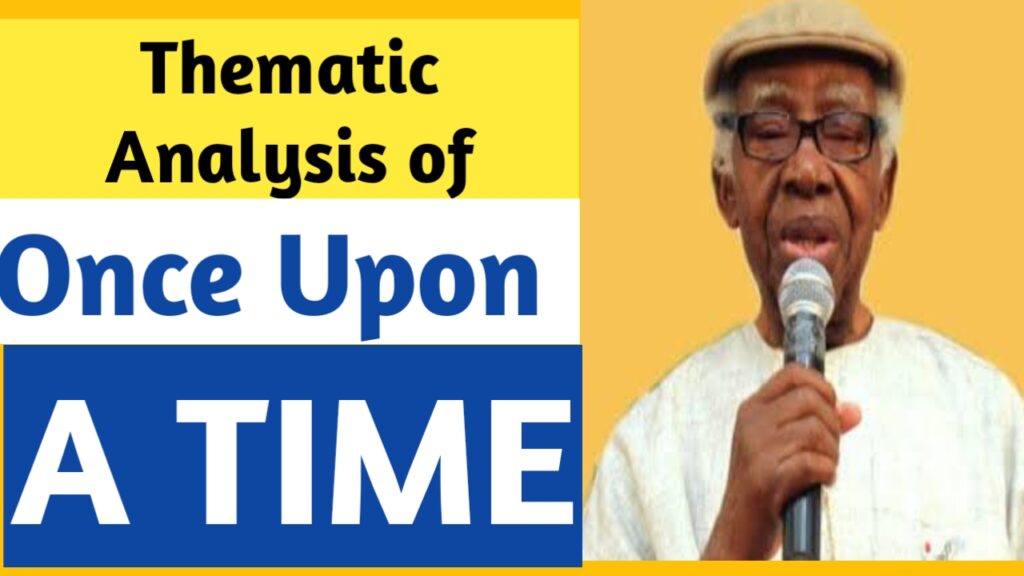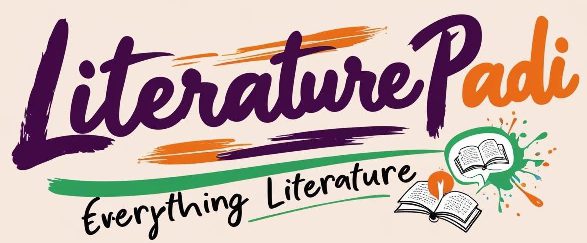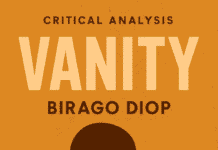📢 Follow our WhatsApp Channel for the latest literary updates!
The themes in Gabriel Okara’s “Once Upon a Time” include insincerity, lost innocence, nostalgia, societal conformity, and yearning for authenticity.
Gabriel Okara’s “Once Upon a Time” is a lament for lost innocence that indicts a society that values conformity over authenticity and appearances over genuine connection.
Elsewhere, we have analysed “Once Upon a Time.” Therein, we ran the stanza-by-stanza analysis of the poem, highlighted some figures of speech in the poem, and concluded with the tone and mood of the poem.
Theme of Insincerity
The theme of insincerity is perhaps the overarching theme in Gabriel Okara’s “Once Upon a Time.” It is a topical issue in the poem. We see insincerity in everything in the poem: in people’s laughter, their handshakes, and hollow phrases. There are ulterior motives beneath their superficial greetings and forced camaraderie.
In the past, people shook hands with their hearts to symbolise genuine goodwill and trust. However, the speaker observes that this sincerity has vanished. Handshakes have become perfunctory gestures, devoid of heartfelt warmth, while the left hand stealthily searches for material gain.
Similarly, expressions of hospitality and welcome, such as “Feel at home!” and “Come again,” have become hollow phrases devoid of genuine invitation. Their invitations and greetings feel performative.
To cap it all, people put on facades to mask their true emotions and personalities: “homeface, officeface, streetface,” etc. Insincerity is further emphasised through the speaker’s description of wearing different “faces,” like dresses, to fit into various social contexts.
Thus, the poem aptly depicts how insincerity has crept into every interaction in the world of adults.
Theme of Lost Innocence
The theme of lost innocence is one of the themes in Gabriel Okara’s “Once Upon a Time.” The whole idea behind the nostalgia of the speaker is, understandably, to portray the innocence and authenticity of the past, which have been supplanted by the insincerity and societal conformity of the present.
The poem establishes a clear contrast between the “once upon a time” of childhood and the present adult world. Laughter in childhood involved the whole being, “hearts and eyes,” signifying genuine joy and unfiltered expression. In contrast, adult laughter is reduced to a mere “teeth-baring,” lacking warmth and depth. This shift symbolises the loss of spontaneity and emotional vulnerability that often accompanies adulthood.
The loss of innocence has demonstrably affected the speaker, who now feels compelled to wear various “faces” to navigate the world. This constant performance further distances him from his true self and amplifies his yearning for simpler, more authentic interactions.
It is little surprising that the speaker sees in his child the very innocence he has lost himself with the advent of adulthood. The reason for this perception is not far-fetched. The child is very young and has not been inducted into the deceitful and hypocritical ways of the adult world.
Therefore, beyond bemoaning the insincerity of adults and the contemporary world, the poem mourns the loss of innocence in human interactions.

Theme of Nostalgia
Another significant theme in “Once Upon a Time” is the theme of nostalgia. For instance, the recurring use of “once upon a time” and its equivalents establishes a nostalgic lens through which the poem critiques the present. It evokes a romanticised past where laughter was genuine, handshakes held trust, and connections felt deeper.
The speaker clings to memories of the past as a source of comfort and hope. He recalls the simplicity and authenticity of childhood. His reminiscence fuels his desire to reclaim those qualities in the present.
Theme of Societal Conformity
The theme of societal conformity is one of the important themes in Gabriel Okara’s “Once Upon a Time.” The poem is a portrayal of the extent to which societal pressure can override individual choices.
For one, the “faces” the speaker adopts represent the various masks he wears to meet societal expectations in different contexts. They illustrate the pressure to conform to external norms and suppress individuality. This leads to emotional detachment as individuals struggle to maintain the facades they have constructed.
The speaker’s statement expresses a desire to break free from the constraints of societal conformity and reclaim his individuality: “I want to unlearn all these muting things.” He recognises that the act of wearing these masks has muted his true emotions and personality.
His plea to his son, “I want to be what I used to be,” signifies the importance of preserving one’s authentic self even in the face of societal pressures. He wants to return to who he was before his individuality was overridden by societal conformity.
Theme of Yearning for Authenticity
The theme of yearning for authenticity is another noteworthy theme in Okara’s “Once Upon a Time.” One thing we can all agree about about the speaker in the poem is that he is disillusioned with the present state of the world.
The speaker expresses a deep desire to return to a time when laughter was genuine, handshakes were sincere, and interactions were heartfelt.
The poem thus culminates in a desperate plea to his son, the embodiment of the lost innocence the speaker desperately wants to reclaim. “Show me, son,” he implores, “how to laugh; show me how/I used to laugh and smile/once upon a time when I was like you.”
Premium PDF
We have a study guide made just for you to aid your understanding of Gabriel Okara’s poem. The 18-page premium study guide has a touch of finesse you can only find on Literature PADI. Download the entire Once Upon a Time study guide as a printable PDF now!

Also in Similar Categories
- Poem: “Once Upon a Time” by Gabriel Okara
- Content Analysis of Gabriel Okara’s “Once Upon a Time”
- 2026–2030 Recommended Literature Texts For WAEC and NECO SSCE
Join Our Social Media Channels:
- WhatsApp: Literature PADI
- Telegram: Literature PADI
- YouTube: @literaturepadi
- Facebook: Literature PADI











Movie
You are too much